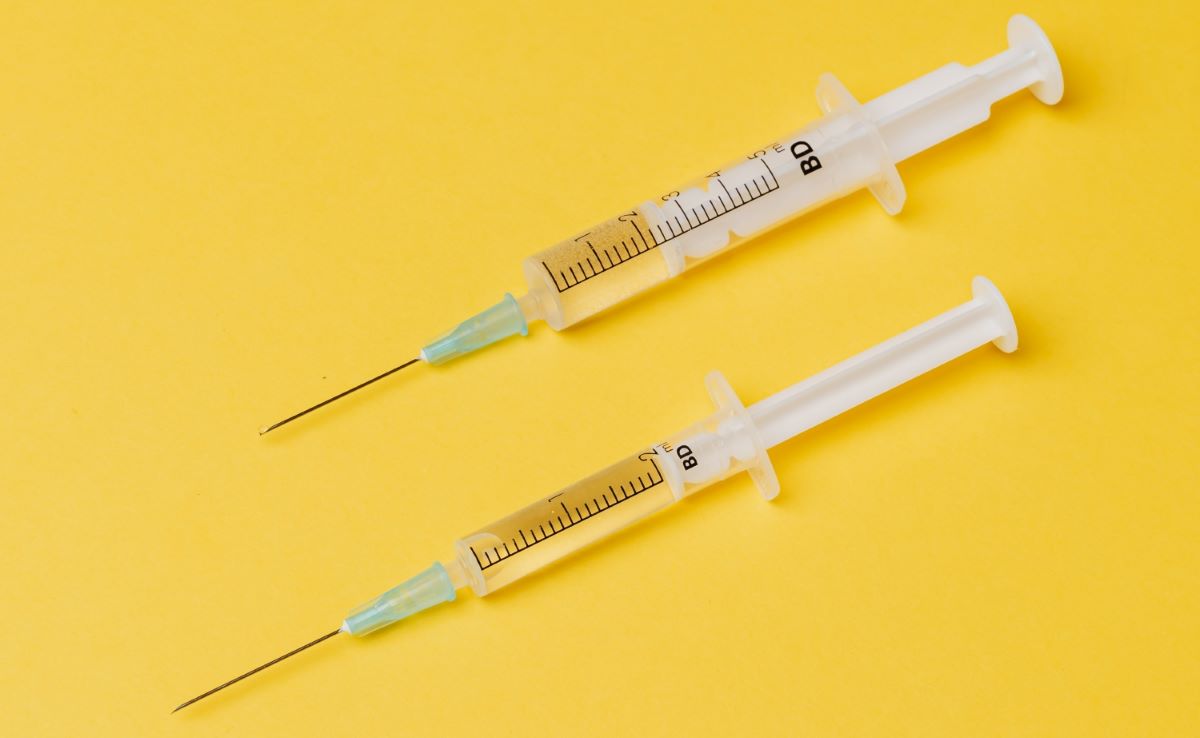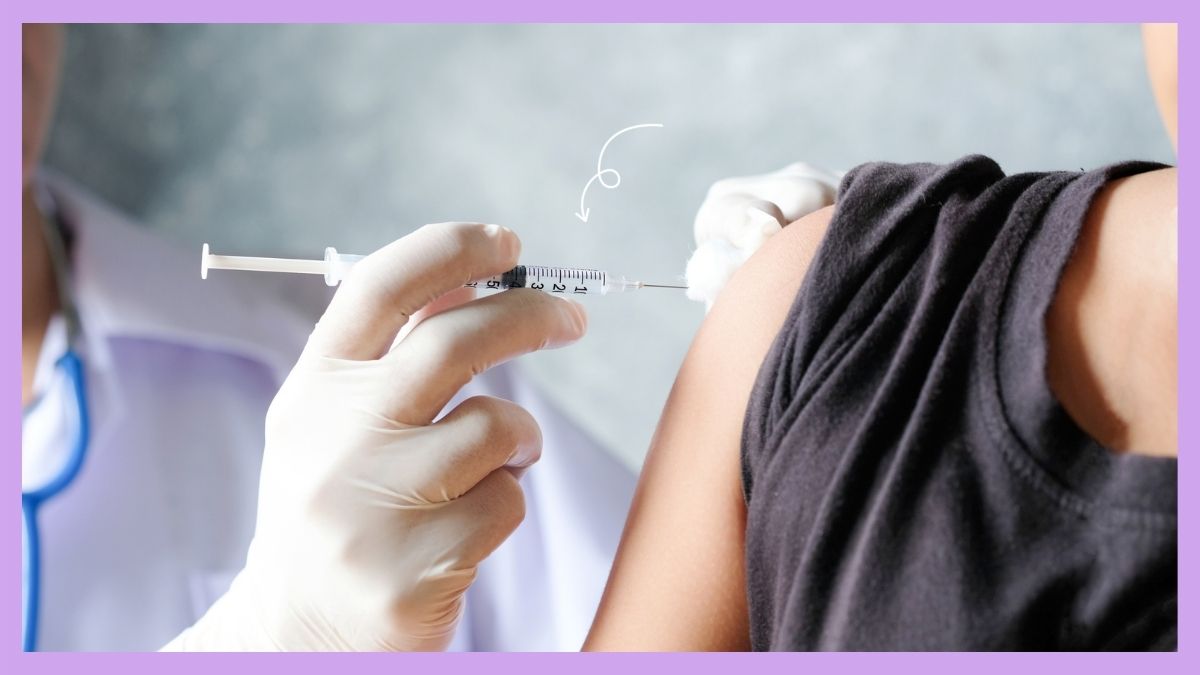

Finance
How Much Do Allergy Shots Cost With Insurance?
Published: November 14, 2023
Discover the cost of allergy shots with insurance and learn how financial planning can help you manage medical expenses. Explore the available options for financing your allergy treatment.
(Many of the links in this article redirect to a specific reviewed product. Your purchase of these products through affiliate links helps to generate commission for LiveWell, at no extra cost. Learn more)
Table of Contents
Introduction
Allergies can be a bothersome and sometimes debilitating condition for many individuals. The symptoms can range from mild discomfort to severe reactions that interfere with daily life. Allergy shots, also known as immunotherapy, are a common treatment option for those seeking long-term relief from allergies. However, the cost of allergy shots can be a concern for many individuals.
In this article, we will explore the topic of how much allergy shots cost with insurance coverage. We will discuss the factors that can influence the cost of allergy shots, the types of insurance coverage available, and provide tips on reducing out-of-pocket expenses related to allergy shot treatments.
Understanding the cost of allergy shots with insurance is essential for individuals considering this treatment option. Allergy shots are a form of long-term treatment that involves exposing the patient to small amounts of the allergen in order to build tolerance over time. This process can take several months to years, depending on the individual’s specific needs and response to treatment.
Insurance coverage plays a crucial role in the affordability of allergy shots. The extent of coverage varies depending on the insurance plan and the specific policy details. Some insurance plans offer comprehensive coverage for allergy shots, while others may cover only a portion of the cost or require individuals to meet a deductible before coverage kicks in.
Factors such as the type and severity of allergies, the frequency of treatment, and the location of the healthcare provider can also impact the cost of allergy shots. It is important to consider these factors when evaluating the potential financial burden of allergy shot treatments.
In the following sections, we will delve deeper into the role of insurance in allergy shot coverage, the factors that influence the cost of allergy shots, and the average cost of allergy shots with insurance coverage. We will also provide insights into the types of insurance coverage available for allergy shots and offer tips on how to reduce out-of-pocket expenses associated with this treatment.
Understanding Allergy Shots
Allergy shots, also known as allergen immunotherapy, are a treatment option for individuals suffering from allergies. This form of therapy aims to desensitize the immune system to specific allergens, reducing or even eliminating the allergic reactions over time. Understanding how allergy shots work is essential in evaluating their effectiveness and cost.
Allergy shots involve administering injections of small amounts of allergens under the skin. These allergens can range from pollen and dust mites to pet dander and insect venom. The treatment typically begins with a build-up phase, during which the allergen dosage gradually increases. This phase aims to help the body develop tolerance to the allergen.
After the build-up phase, maintenance doses are administered at regular intervals, usually every few weeks or months. The duration of treatment can vary depending on the individual’s response, but it often spans several years. The goal is to help the immune system become less reactive to the specific allergen, reducing the severity of allergic symptoms or even eliminating them altogether.
Allergy shots can be highly effective in providing long-term relief for allergies. They have been shown to alleviate symptoms such as sneezing, congestion, itching, and redness. Additionally, allergy shots can reduce the need for medication and improve overall quality of life for those suffering from allergies.
It is important to note that allergy shots are not suitable for everyone. They are typically recommended for individuals with moderate to severe allergies that significantly impact their daily lives. A healthcare professional, such as an allergist or immunologist, can evaluate whether allergy shots are a suitable treatment option based on a thorough medical history and allergy testing.
While allergy shots can be an effective treatment, they do require a time commitment and financial investment. The cost of allergy shots, especially without insurance coverage, can be a concern for many individuals. However, insurance coverage can help mitigate the financial burden associated with this treatment.
The Role of Insurance in Allergy Shot Coverage
Insurance coverage plays a vital role in determining the affordability of allergy shots. The extent of coverage varies depending on the insurance plan and policy details, but having insurance can significantly alleviate the financial burden associated with this treatment.
Most health insurance plans provide some level of coverage for allergy shots, considering them as a medically necessary treatment for individuals with moderate to severe allergies. However, the specific coverage details, such as copayments, deductibles, and out-of-pocket limits, may vary.
It is essential to review your insurance policy to understand the terms and conditions regarding coverage for allergy shots. Some insurance plans may cover the full cost of allergy shots after a deductible has been met, while others may require a copayment for each visit or a percentage of the total cost.
Furthermore, insurance companies often require individuals to obtain prior authorization before starting allergy shot treatments. This involves submitting documentation from a healthcare provider, such as an allergist or immunologist, outlining the medical necessity of the treatment. Failure to obtain prior authorization could result in denial of coverage or increased out-of-pocket expenses.
In some cases, insurance plans may have a network of preferred providers, and seeking treatment from an out-of-network provider can result in reduced coverage or higher out-of-pocket costs. It is crucial to understand the network restrictions and consult with your insurance company to identify the covered healthcare providers in your area.
Additionally, insurance coverage for allergy shots can vary depending on the type of insurance plan. For example, employer-sponsored group health plans may provide more comprehensive coverage compared to individual health insurance plans. Medicare and Medicaid plans may also offer coverage for allergy shots, but the specifics may differ.
It is important to communicate with your insurance provider and healthcare provider to ensure that you are well-informed about the coverage and any associated costs for allergy shots. This will help you make informed decisions and plan for any out-of-pocket expenses that may arise during the course of treatment.
In the next section, we will explore the factors that influence the cost of allergy shots and provide insights into the average cost of allergy shots with insurance coverage.
Factors Affecting Allergy Shot Costs
Several factors can influence the cost of allergy shots, both with and without insurance coverage. Understanding these factors can help individuals evaluate the potential financial burden associated with this form of treatment.
1. Insurance coverage: The extent of insurance coverage for allergy shots is a significant factor in determining the out-of-pocket costs. Different insurance plans have varying coverage levels, such as copayments, deductibles, and out-of-pocket limits.
2. Treatment duration: The duration of allergy shot treatment can impact the overall cost. Since allergy shots are typically administered over several months to years, the frequency of treatments can contribute to the cumulative expenses.
3. Specific allergens: The type and number of allergens used in the treatment can affect the cost. Some individuals may require shots for multiple allergens, while others may only need treatment for specific allergens. The cost of preparing and administering different allergen extracts varies.
4. Geographical location: The geographic location of the healthcare provider can also impact the cost of allergy shots. The cost of living, healthcare market, and provider fees can vary from one region to another.
5. Healthcare provider: The choice of healthcare provider can affect the cost of allergy shots. Different providers may have varying fees for administering the shots and providing the necessary follow-up care.
6. Additional tests and services: In some cases, additional tests, such as allergy testing or laboratory work, may be required before or during the allergy shot treatment. These additional services can add to the overall cost.
7. Medication costs: Allergy shots often require the use of allergy medications, such as antihistamines or corticosteroids, to manage symptoms or supplement the treatment. The cost of these medications can be an additional expense.
It is important to consult with your healthcare provider and insurance company to understand the potential costs associated with allergy shots. They can provide specific information about coverage details, estimated costs, and any financial assistance programs that may be available.
In the next section, we will discuss the average cost of allergy shots with insurance coverage, which can provide further insights into the potential expenses individuals may encounter.
Average Cost of Allergy Shots with Insurance
The cost of allergy shots with insurance coverage can vary depending on factors such as the specific insurance plan, geographical location, and the individual’s policy details. Understanding the average cost can provide individuals with a general idea of what to expect when considering allergy shot treatments.
The average cost of allergy shots with insurance can range from around $10 to $40 per visit, which typically includes the cost of the allergen extracts and administration fees. However, the exact cost may vary based on the individual’s insurance plan and the specific services provided by the healthcare provider.
While many insurance plans cover a portion of the cost, it is important to note that individuals may still have to meet deductibles or pay copayments or coinsurance for each visit. These out-of-pocket expenses can contribute to the overall cost of allergy shots.
It is advisable to contact your insurance company and healthcare provider to determine the specific coverage details and any potential additional costs associated with allergy shots. This will help you estimate the overall cost and plan accordingly.
Moreover, it is essential to consider the duration of treatment when evaluating the cost. Allergy shots typically involve a build-up phase followed by maintenance doses over a period of several months to years. The cumulative cost of multiple visits can add up, even with insurance coverage.
If the cost of allergy shots is a concern, there are several options to explore. Some insurance plans offer flexible spending accounts (FSAs) or health savings accounts (HSAs), which can be used to save pre-tax dollars for eligible medical expenses, including allergy shots. Additionally, individuals can inquire about any financial assistance programs or discounts offered by healthcare providers or pharmaceutical companies.
It is essential to find a balance between the quality of healthcare providers, their reputation, and the overall costs. While cost is an important factor, it is equally important to choose a provider who is experienced in administering allergy shots and can provide the necessary follow-up care and support.
Keep in mind that the cost of allergy shots without insurance coverage can be significantly higher. Without insurance, the average cost can range from $1,000 to $2,500 per year, making insurance coverage a valuable asset in managing the financial aspects of this treatment.
In the next section, we will explore the different types of insurance coverage for allergy shots, which can provide individuals with a better understanding of their options.
Types of Insurance Coverage for Allergy Shots
Insurance coverage for allergy shots can vary depending on the type of healthcare plan and the specific policy details. Understanding the different types of insurance coverage available can help individuals determine their options and make informed decisions regarding their allergy shot treatments.
1. Group Health Plans: Many individuals receive insurance coverage through their employers’ group health plans. These plans often offer comprehensive coverage for allergy shots as part of their benefits package. The coverage details, including copayments, deductibles, and out-of-pocket limits, vary depending on the specific plan.
2. Individual Health Plans: Individuals who purchase health insurance on their own may have individual health plans. These plans may also provide coverage for allergy shots, but the extent of coverage and cost-sharing arrangements can differ. It is important to review the policy details and contact the insurance provider to understand the coverage specifics.
3. Medicare: Medicare, the federal health insurance program for individuals aged 65 and older, often covers allergy shots for eligible individuals. Medicare coverage includes both the allergen extracts and administration fees. However, individuals may still have to pay deductibles, coinsurance, or copayments depending on the specific Medicare plan.
4. Medicaid: Medicaid, the joint federal and state health insurance program for low-income individuals, also provides coverage for allergy shots. The coverage details may vary based on the state’s Medicaid program, but generally, allergy shots are considered a covered benefit. Eligibility requirements and cost-sharing arrangements differ by state.
5. Managed Care Plans: Managed care plans, such as Health Maintenance Organizations (HMOs) and Preferred Provider Organizations (PPOs), often provide coverage for allergy shots. These plans typically have a network of preferred providers, and individuals may need to receive their allergy shots from an in-network provider to receive the full coverage benefits.
6. High Deductible Health Plans (HDHPs) with Health Savings Accounts (HSAs): HDHPs with HSAs are insurance plans that have high deductibles but offer the option to save pre-tax dollars in an HSA to pay for eligible medical expenses. Allergy shots may be considered a qualified expense that can be covered using funds from an HSA, providing individuals with an opportunity to save on taxes.
When seeking insurance coverage for allergy shots, it is important to review the policy documents, contact the insurance provider, and consult with the healthcare provider to understand the coverage details, any requirements for prior authorization, and any out-of-pocket expenses that may arise.
In the next section, we will provide tips on reducing allergy shot costs with insurance coverage, which can help individuals manage their expenses and make the treatment more affordable.
Tips for Reducing Allergy Shot Costs with Insurance
Managing the costs associated with allergy shots can be a concern for individuals, even with insurance coverage. However, there are several tips and strategies that can help reduce allergy shot costs and make the treatment more affordable. Consider the following tips:
1. Review your insurance plan: Take the time to thoroughly review your insurance policy to understand the coverage details, including copayments, deductibles, and out-of-pocket limits. Knowing the specifics of your plan will help you anticipate and plan for any potential costs.
2. Choose an in-network provider: Preferred providers within your insurance network often offer more favorable coverage terms. Opting for an in-network allergist or immunologist can help reduce your out-of-pocket expenses for allergy shot treatments.
3. Get prior authorization: Many insurance plans require prior authorization before starting allergy shot treatments. Make sure to obtain the necessary documentation from your healthcare provider to ensure that the treatments are covered by your insurance.
4. Utilize flexible spending accounts (FSAs) or health savings accounts (HSAs): If your insurance plan offers FSAs or HSAs, consider using these tax-advantaged accounts to save pre-tax dollars for eligible medical expenses. This can help offset the costs associated with allergy shots.
5. Explore financial assistance programs: Some pharmaceutical companies and allergy clinics offer financial assistance programs or discounts for individuals who may struggle with the costs of allergy shots. Inquire with your healthcare provider or contact the pharmaceutical company directly to see if any programs are available.
6. Optimize m
Conclusion
Allergy shots can be an effective long-term treatment option for individuals suffering from allergies. While the cost of allergy shots may pose a concern, understanding insurance coverage and implementing cost-saving strategies can help mitigate expenses.
Insurance coverage plays a crucial role in determining the affordability of allergy shots. Group health plans, individual health plans, Medicare, and Medicaid often provide coverage for allergy shots, although the specifics may vary. It is important to review policy details, understand coverage terms, and seek prior authorization to ensure smooth and cost-effective treatment.
Several factors can influence the cost of allergy shots, including the treatment duration, specific allergens, geographical location, and additional tests or services required. By considering these factors, individuals can better estimate their out-of-pocket expenses and plan accordingly.
Managing allergy shot costs also involves utilizing tax-advantaged accounts such as FSAs or HSAs, exploring financial assistance programs, and optimizing medication costs. These strategies can help reduce the overall financial burden associated with allergy shots.
In conclusion, while allergy shot costs with insurance coverage can vary, understanding the average cost, types of insurance coverage available, and implementing cost-saving tips can help individuals make informed decisions about their treatment while managing their expenses effectively.
Before starting allergy shot treatments, it is important to consult with a healthcare provider and verify the coverage details with your insurance company. By doing so, individuals can navigate the financial aspects of allergy shots and focus on achieving long-term relief from their allergies.














